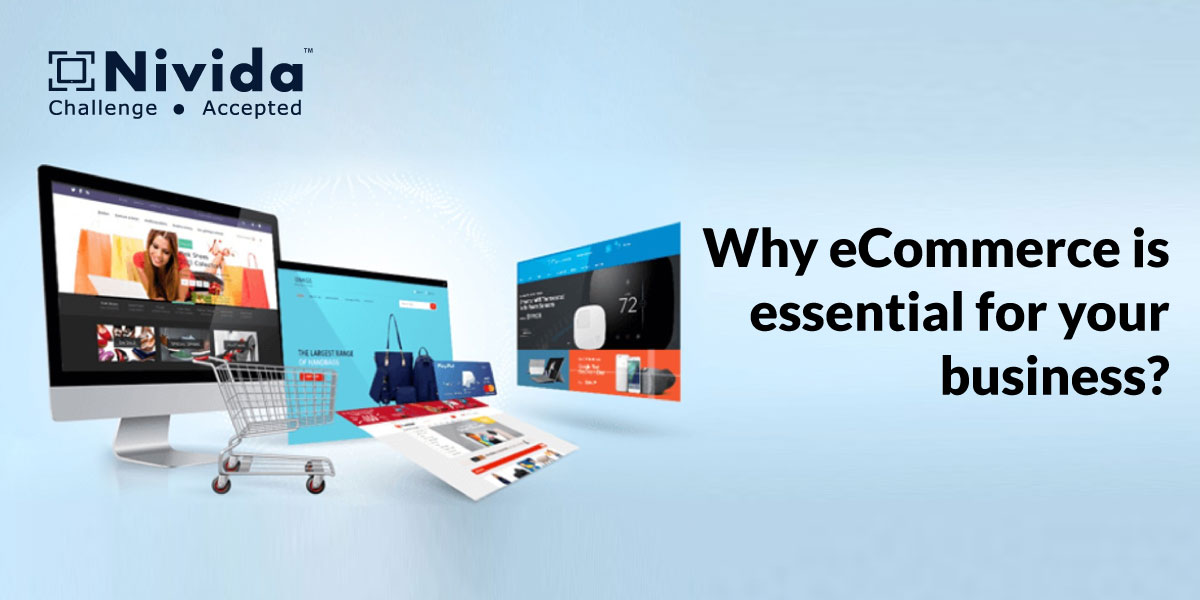In the developing global economy, eCommerce has steadily become a crucial component of business strategy and a potent stimulus for economic development. As eCommerce continues to flourish, increased competition, cost savings, and changes in seller pricing behaviour might all lead to decreased inflation.
From startups to small and medium-sized enterprises to large corporations, having an online store where they may offer their own products/services can benefit a wide spectrum of businesses.
When it comes to providing trustworthy quality and enhanced performance for the eCommerce development projects you want to work on, it's highly recommended that you contact us because we have both the technology and the necessary solutions for any eCommerce organisation. In a similar vein, we prioritise operations and ensure that the projects we work on are always effective. So, tell us what you need and we'll take care of the rest.
If you're still on the fence about starting your own eCommerce site, you might wonder
Why Does Your Business Need an eCommerce Website?
-
Global Market Reach:
Thanks to the internet's accessibility, millions of people across the world can read your website at any time, giving those wishing to expand their businesses and reach a wider audience a lot more alternatives. When you consider the number of people you can contact through a website versus a high street store or local advertising, there's no reason you shouldn't consider moving your business online if you want to expand your reach.
-
24x7 Available:
Traditional businesses often have set hours, however, an online e-commerce store can be open 24x7, 365 days a year.
This is extremely customer-friendly because customers can shop whenever they want. While businesses are sleeping, they might see revenue coming in.
Online buyers make purchases at about 8 p.m., according to recent statistical data. Many offices and physical stores are closed at this time, causing shoppers to miss out on the busiest shopping hours.
-
Broaden Your Brand:
Your products are listed in a general fashion when you offer them on a marketplace. There is minimal to no room for customization or branding, from character constraints to word count restrictions to logo usage. In fact, the marketplace's brand, not yours, is at the forefront. This makes brand awareness and familiarity extremely impossible to achieve.
Most visitors and consumers assume your product belongs in the marketplace and are unaware that you exist. Let’s say, for instance, your consumers will remember the marketplace instead of you.
-
Higher Conversion Rate:
Branding and customer relationships have always been important in retail. However, with internet retail, things have altered dramatically, with potential purchasers searching for items and services online and landing on eCommerce websites they've never heard of. Search engines send a flood of visitors to e-commerce sites, resulting in more customer acquisitions.
-
Marketing via Social Media platforms and other Search Engines:
Not only can adopting SEO while designing your site boost the likelihood of your business being found in search engines, but a variety of additional marketing strategies, including social media marketing, email marketing, and pay-per-click advertising can all include links back to your website.
-
Fewer Overheads:
When compared to a physical and mortar company, starting an internet store might save you a lot of money. The merchant or the owner of an internet business does not have to worry about the expensive costs of shop rental, paying a salesperson to entice customers, electricity bills, security measures, and so on. As a result, you will be able to sell your products at a profit. Furthermore, having an internet store allows you to maximise your profits while reducing your risk.
-
Personalisation:
One of the clear benefits of having an online store is being able to know what your customers are doing. It would be physically uncomfortable for a potential buyer to enter your store while you stood behind him inquiring what he wanted or why he didn't buy your product.
eCommerce, for example, allows you to see where you left the purchase halfway through the process and even remember where you left it by sending an email. This can also help you improve your shopping experience for another occasion, such as by reducing the number of steps required to make an order or by suggesting products with comparable features to the customer.

